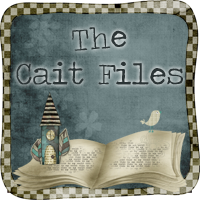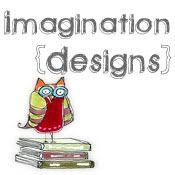Welcome to Caitlin Considers, my fortnightly discussion post. Today I'm looking at genres, the benefits of them and also the downsides.
Genre is usually one of the first things we look at when thinking about whether to read a book. Is it YA or Adult? Is it Fantasy or Contemporary? Often we have favourite genres and actively hunt out books within them. Occasionally we might avoid books classified as a certain genre, because we 'know' we don't like it.Genres can be especially useful when we've loved one book and want to read something similar. If you've just read The Hunger Games, for example, most people will probably direct you to Divergent, or The Maze Runner or something similar. Without genres, this task would be harder.Genre isn't just important for the readers, it's important for publishers too. That way, they can market books towards people who will enjoy them, fans of that genre. Without that, every book would have to be marketed at everyone, which would definitely make marketing campaigns less effective.
But genres CAN cause confusion. Namely, what genres do we give certain books? Let's look at The Mortal Instruments series by Cassandra Clare.It could probably be classified as Urban Fantasy or Paranormal Romance, personally I'd call it Urban Fantasy. Why? Well, the urban part is pretty obvious. But why Fantasy rather than Paranormal Romance? Well...it just feels more that way to me. (**I asked Cassie Clare and she said it is Urban Fantasy...but I figured it still made a good example ;)** ) With a PNR, I tend to see the romance as the key element, whereas with TMI, the romance IS important, but it's *not* the main thing. So which is it...Paranormal Romance, or Urban Fantasy? Or is it just Paranormal fiction? All These Things I've Done is another example. Before reading, I would have described it as a Dystopian. After reading, I think it's more Contemporary, set in a vaguely dystopian society. And from reading reviews, it seems as though a few people were disappointed by how un-dystopian it was. Which makes you wonder, if they hadn't thought it was dystopian in the first place, would they have felt differently about it? So, is genre-confusion an actual problem? Have any of you ever read a book and thought "but what *genre* is it?"
How do we decide? Is there some kind of objective set of guidelines we can apply to books? Should we leave it upto the authors and the publishers to decide or is it in the hands of the fans, those who read widely and maybe know best? Or should there be objective judges? Do we go off whatever the main theme of the book is? And what happens when you find a book that seems to defy genre, like The Scorpio Races by Maggie Stiefvater...what would you classify that as? It's slightly paranormal, slightly contemporary, it's definitely fairly literary...and there's horses. Does it need a genre, or can there be exceptions to the genre rule?
How much damage do genre classifications cause? I bet there are tonnes of people who wont read ANY Paranormal Romance because of Twilight, or even any YA because of their perceived notions of it. Up until a few months ago, I wouldn't read any contemporary fiction. Why? "because I don't like it". Bollocks, how I can just decide to dislike a whole genre? But that's the thing, it's SO easy to do. I hated LOTR so I'll hate all Fantasy. I wont like women's fiction because...well, I just wont. We don't always judge books on the merits of them in themselves, but based on what we assume they will be like, and a lot of this is down to what genre we think they are.
What do you guys think? Are genres important to you or not? Do you lie awake at night, desperately trying to categorise books or do you actually really not care as long as you enjoyed it? Would you avoid any books because of the genre they are/you think they are?
And finally....a little exercise. How would you classify the books/series below? (I'm curious to see if people's answers differ)
The Mortal Instruments by Cassie Clare
All These Things I've Done by Gabrielle Zevin
The Scorpio Races by Maggie Stiefvater
Twilight by Stephenie Meyer
The Immortal Rules by Julie Kagawa
The Demon Trappers by Jana Oliver
New York Saints Books in Order
7 months ago







































I'd say that genres - though useful - do tend to be a little confusing. Like you said, some books would fit into several and then there are those - like The Scorpio Races - that I couldn't even begin to categorise.
ReplyDeletePersonally I tend to lean towards Fantasy/ Urban Fantasy books and I'm not usually a fan of the Dystopia genre, but I will still read one if you stick it under my nose. In all likelihood I will still enjoy it, though it wouldn't be my normal choice.
Hmm... haven't read the first two books, but from what I can gather I'd guess:
The Mortal Instruments - Urban Fantasy
All These Things I've Done - Crime Thriller
(Luckily I do know these next three)
The Scorpio Races - tricky... loosely Fantasy but that's a really difficult one
Twilight - Paranormal Romance
The Immortal Rules - Urban Fantasy again
The Demon Trapper - looks like a slightly darker Urban Fantasy, but I haven't read this one either so I'm just guessing here
Reaaly good post, lots of good points :)
Interesting post... I'd,are a nice lengthy comment about my thoughts on this but it's late and I'm knackered! I do think genres are important but I don't think people should jump to conclusions about a book just because it's a certain genre... Does that make enough sense? Also... Demon trappers = urban fantasy & AllThese Things = futuristic contemporary? ;) thenImmortal rules =good vamp and Twilight = bad vamp.... Can I class those as genres? Haha x
ReplyDeleteYes, as a matter of fact, I do sit up at night worrying about genres. See, I started adding a genre label to my posts and so now, suddenly, I'm finding myself looking at every book thinking, "What are you?"
ReplyDeletePersonally I think bookstores are the real problem, or solution depending on your point of view. They have to know where to sell a book, what shelf to put it on. But I've read so many books that I just can't categorize.
I'd have to say TMI series are urban fantasy but I don't want to. My idea of urban fantasy is SO different from what others call UF. The Curse Workers series is also considered UF but, again, I don't think of it that way. I don't know what else to call them, though. Sigh, this is giving me a headache! Way to go writing a whole post about it!
So agree with you. Especially on the TMI C/W thing. But then, I think it's just a distinction between Adult and YA. For YA, it IS UF. But if you compare it to adult UF, it kinda isn't. I suppose it's more mainstream UF in a way. Totes agree about bookshops too.
DeleteGenres...what to do? I mean, clearly they are important, but I think they can make things worse as well as being beneficial. Using TMI as an example, if it's mislabelled as PNR, then people will either be put off by that, or go into thinking they're going to get a detailed love story and instead get a bunch of faeries and demons. Genres often determine whether or not someone is going to read a certain book, so they can definitely be problematic... And The Scorpio Races! I tried to work that one out for ages. I just gave up in the end :P.
ReplyDeleteWow, it's actually really hard to label the genres of the books you listed above! I can't think of the right genre to classify them. I can see how TMI series would be labeled as Urban Fantasy but when the word Urban Fantasy pops in my head, I would never have thought of the TMI series. I'm pretty sure The Infernal Devices series is labelled as Steampunk. I still need to find out more about Steampunk since I'm not really sure of the exact definition.
ReplyDeleteAwesome post, Caitlin! ♥ I think genres are quite important because they help classify books. So if you love paranormal so much, you would try and read paranormal books as much as you can and genres help separate books from each other! :)
I actually have to think about genres for a living! I work in a bookstore and whenever we price books, we have to include the genre.
ReplyDeleteBeing a detail-oriented person, I really like to get specific. If I was classifying something on my own, I'd have every little sub-genre represented. However, at work, we really only think in broad terms.
For example, while paranormal romance has its own paperback section, it's consider horror in the hardbacks. UF is thrown into horror too.
The only distinction in YA/MG we have is YA & Teen Fiction, which bothers me to no end. Where I work, YA is home to books like Percy Jackson, The Mortal Instruments, and Junie B. Jones.
This is brilliant, It also mirrors my attitude to songs and music perfectly. One question.... How do you not like LOTR? :P
ReplyDeleteI haven't read any of the books in the list sorry (Well one but i'm ashamed of the fact).